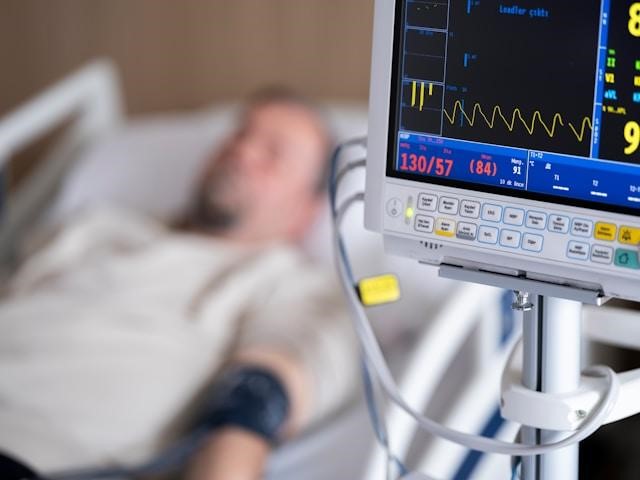Health emergencies occur suddenly, often when you are neither expecting them nor ready to face them. Minor issues may not cause significant health hazards. However, you must know when you must seek emergency medical services. Taking the patient to a hospital offering emergency and trauma care during critical health conditions can make a difference.
This article takes you through the five most common emergency symptoms when you require immediate medical attention.
5 Health Emergencies Requiring Immediate Medical Care
Let’s drill down into the five emergency symptoms that can create severe health troubles if ignored.
1. Sudden, Severe Chest Pain
Chest pain can signify irregularities in the functioning of the heart or a blockage in the blood supply to the heart. If someone’s chest pains suddenly with a crushing, squeezing sensation, radiating towards the arm or jaw, the patient needs immediate medical care.
Nowadays, you come across incidents when youngsters fall prey to cardiac arrest or a heart attack. A prompt intervention, such as cardiopulmonary resuscitation (CPR), can save lives by maintaining blood circulation to significant organs. However, hospitalizing the patient for immediate, advanced medical care is paramount.
2. Unusual Bleeding
Bleeding out of the usual patterns, such as bleeding in the urine or vomiting, rectal bleeding, or vaginal bleeding, may signify ulcers, gastrointestinal or reproductive cancers, kidney-related issues, and hemorrhoids. In such cases, advanced evaluation to diagnose the root cause and immediate treatments are necessary.
3. Sudden, Chronic Abdominal Pain
Quick and sudden abdominal pain is not something you can ignore and wait to reduce. Sharp pains in the abdomen, mainly near the belly button or lower right quadrant, can be the signs of gallstones, appendicitis, kidney stones, or a ruptured aortic aneurysm. Therefore, immediate medical evaluation and treatment are essential.
4. Persistent High Fever
If a person suffers from fever (with body temperature more than 103°F) for over a week, you must take the patient to a hospital for further evaluation and treatment.
Persistent high fever can signify infections, such as meningitis, pneumonia, urinary tract infection, and in some cases, cancers like leukemia and lymphoma. You must arrange medical aid by hospitalizing the patient immediately.
5. Flashes of Light or Changes in Vision
If you feel spots or flashes of light or experience a sense of a curtain falling across your vision, you need emergency medical care. Flashes of light may be a sign of a displaced or detached retina. Immediate diagnosis and treatment are essential. In some cases, these may lead to permanent vision loss among patients.
Why are Emergency and Trauma Care Crucial?
If you experience or find any of the five emergency symptoms mentioned above, you need to realize that your (or the patient’s) body is signaling that something is not right. Minor symptoms may fade out. However, some health conditions require immediate diagnosis and treatment for speedy recovery. Sometimes, these emergency symptoms can be life-threatening.
The most reputable multispecialty hospital in Ahmedabad provides the necessary intensive care in such situations. Take the right decision at the right time by taking the patients to the Emergency, Trauma, and ICU as fast as you can. Your patients will be in safe hands, as the hospital prioritizes patient health and safety.
Why Choose Devasya Hospital for Emergency Medical Services
With a reputation as the top hospital in Ahmedabad for over three decades, they deploy a team of skilled super-specialist surgeons. The expert doctors arrange for a quick diagnosis, define the condition, and execute their line of treatment accordingly.
You can avail of cashless facilities and experience a great peace of mind. The hospital provides the best results across various medical and surgical procedures.
FAQs
1. Is breathing difficulty always an emergency?
Ans: If breathing difficulty starts suddenly, accompanied by wheezing, inability to speak, and shortness of breath, you should treat it as a medical emergency.
2. What sort of injuries need trauma care?
Ans: Severe injuries, such as deep cuts, head injuries, spinal injuries, and broken bones with visible deformity (usually after an accident), require prompt trauma care.
3. What are the symptoms of a heart attack?
Ans: The symptoms of a heart attack include sudden, acute chest pain, shortness of breath, and discomfort in the arm, jaw, or back.
4. When should I suspect a kidney stone?
Ans: You should suspect a kidney stone if you experience sharp pain in your side or lower abdomen (that fluctuates in intensity), frequent, painful, foul-smelling urine, sometimes with traces of blood in it.
5. Which is the best hospital in Ahmedabad for emergency and trauma care?
Devasya Hospital is a well-reputed hospital in Ahmedabad for emergency and trauma care. They have the most experienced doctors and super-specialist surgeons, well-versed in executing critical surgeries for various health disorders.
